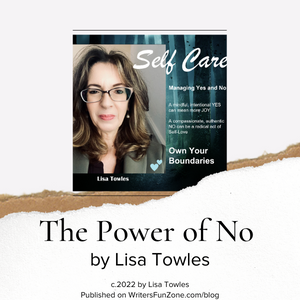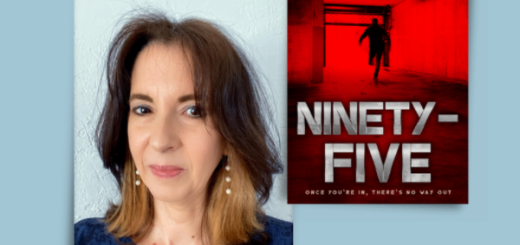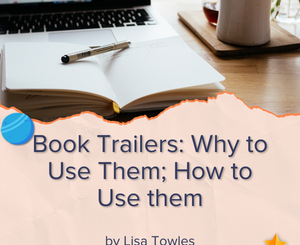The Power of No by Lisa Towles
 Let’s welcome back Lisa Towles as she shares with us “The Power of No.” Enjoy!
Let’s welcome back Lisa Towles as she shares with us “The Power of No.” Enjoy!
***
The word no in the English language has many nuances, forms, and connotations, and its grammatical classification is even more nebulous.
In speech and interpersonal communication, it can be descriptive or emphatic.
Parenting, it’s a bold line in the sand.
Most interesting to me is how no is used (or unused) in the parameters we set for our lives. Too much or the wrong kind can be viewed as obstructionist, even aggressive. And not enough of it has a different kind of imbalance.
No was the first word I ever spoke out loud, but this doesn’t necessarily mean I use it skillfully every time.
I have good boundaries, but at times they’re too fluid, and I sometimes say yes when I mean no. The hazards, of course, are the stress and burnout that can result from being overcommitted. But looking deeper, a lack of boundaries can bring unhealthy relationships with others taking advantage of you.
So a new self-care practice I’m working on is doing a better job of managing my Yes’s and No’s. By doing this, I’m creating more time and space for the things I want to work on, and cultivating healthier relationships in my life.
Saying yes feels good because it’s an empowering, affirmative word evoking happiness, relief, acceptance, even praise.
“You did all that and ahead of schedule? You’re amazing!”
Who doesn’t want to hear that at the end of a project?
The question is: What activities did you set aside to meet that deadline?
Chronically saying yes implies people-pleasing, fear of consequences, and an unwillingness to disappoint people.
Of course no one wants to disappoint people. At some point, though, we realize that the core truths we’ve been ignoring demand to be heard and acknowledged. That’s when it’s time to get real about what we want and what we don’t want.
So what are our options?
The Power of No
While saying yes might insulate us from judgment or harsh scrutiny, the NO switch comes with some potential risks as well.
It also comes with many rewards, such as increased confidence, improved self-esteem, and a stronger sense of self. If you’re willing to say no and disappoint people to let your authentic self shine, what other risks will you be willing to take?
Some ideas for getting more comfortable with your no:
- Journaling to start a self-dialogue, to start understanding your real capacity, current obligations, and how you want to be spending your time.
- Saying no to small things and to people whose approval isn’t critical to your well-being, as a way of practicing your no.
- Monitoring and observing: Once you start experimenting with these new practices, try to catch yourself when old behaviors emerge. “Sure that’s fine, I don’t care.” Is that true? Or do you care, do you have a preference, and what’s preventing you from articulating it?
There are lots of ways that saying no applies to the writing path. Any of these sound familiar?
- Taking on too many new projects, even if they’re fun or aligned with your writing goals.
- Agreeing to a writing, beta reading, or editing deadline that’s just not realistic.
- Agreeing to write something under contract that you don’t want to write.
- Saying you’re okay with a change when you’re really not.
Risks in Saying No
Most of the risks of saying no and disappointing people are about fear of consequences.
We might not trust that we’ll still be accepted (or loved) if we disappoint the people we care about.
There’s an inherent opportunity cost of saying no as we might miss out on some fun, enriching experiences.
We may also feel disapproval from others as we begin to speak our truth, get stronger, and take these new risks. But we can mitigate some of them by using care with our words, vibe, and delivery.
Need to say No? Try the “Not-Now Approach”
Try one of these phrases below.
Practice and experiment on them until they start to feel natural. The ultimate goal is to be able to use these in the moment and in situations that matter to your well being.
When someone asks you, “Can you do _______?”
- “Not at the moment, no. If it’s urgent, I can get it to you by _____.”
- “Not without impacting my existing timelines. Let me know if it’s urgent and I can get back to you shortly with a plan.”
If you’re not comfortable with saying no, putting these kinds of statements in motion might cause some discomfort, second-guessing, or even guilt at first.
That’s okay.
The sense of power and freedom that this change will bring you is well worth some initial uncertainty. You can do this!
Flat-Out No
Once you’ve mastered the “Not Now” technique, you might feel empowered to try the “Flat-out No” approach.
I recommend trying it out with a family member or a friend first to role-play and get used to the idea.
Here’s how this might sound:
When someone asks you, “Can you do ________?”
Start by asking yourself if you really want to do what they’re asking. If not, try one of these phrases so you can start owning your schedule and saving time for the things you really want to do.
- “No.” (Just say the word, be emotionally neutral about it, stay silent, breathe, and appreciate yourself.)
- “What do you mean ‘no’ ?”
- “I am not able to do that.”
- “I’m confused. You did this last time and there was no issue. So why is there an issue now?”
- “I’m not available to help you with this right now. I’m committed to other things.”
Notice the word “sorry” is not in either of these approaches.
It’s not only okay but it’s healthy to have and use boundaries so that you alone own your time and how you spend it.
If you deliver your no with honesty and kindness, there’s no apology necessary.
Ultimately managing yes and no is about cultivating discernment, being more mindful, and saying yes to things that energize and elevate us so we can enjoy more of our life and live more fully in the present.
Further Resources to Learn More
- The Power of Saying No by Keisha Moore (Psychology Today, 2021)
- How To Say No Without Feeling Guilty by Patti Breitman (2000)
- How and When To Say No by Margarita Tartakovsky (PsychCentral, 2021)
- Learn When To Say No by Bruce Tulgan (Harvard Business Review, 2020)
I would love to hear comments and feedback about your experience. And if you’d like to contact me directly, email me: lisamarietowles@gmail.com.
Keep shining,
Lisa
***
ABOUT LISA TOWLES
 Lisa Towles is an award-winning, Bay Area, crime novelist. Her most recent thriller, Ninety-Five, was published in November 2021, and her upcoming thriller, Hot House, will be released in June, 2022. Her last two thrillers, The Unseen and Choke, each won two literary awards, and she has 4 additional mysteries published under Lisa Polisar. Learn more about Ninety-Five here and more about Lisa on her website.
Lisa Towles is an award-winning, Bay Area, crime novelist. Her most recent thriller, Ninety-Five, was published in November 2021, and her upcoming thriller, Hot House, will be released in June, 2022. Her last two thrillers, The Unseen and Choke, each won two literary awards, and she has 4 additional mysteries published under Lisa Polisar. Learn more about Ninety-Five here and more about Lisa on her website.
Social media links:
- Website: http://lisatowles.com
- Facebook: https://www.facebook.com/lisatowleswriter
- Twitter: https://twitter.com/writertowles
- Instagram: https://www.instagram.com/authorlisatowles
- LinkedIn: https://www.linkedin.com/in/lisatowles
- Pinterest: https://www.pinterest.com/bridgit66/_saved












Great advice. I would add that FOMO (fear of missing out) drives me to say yes when I should say no. For example, all the wonderful online offerings for writers.
This is a terrific article. I ran the Faculty Recruiting Department at the GSB, Stanford U, and had to learn to say no to 125 professors at one time or another. Fortunately, the majority of them understood when I would explain my no to them (you really have to give them a reason). Personally, though, I find it hard to say no to a friend when I think someone won’t like me anymore. Working on that!
This is a great article. It really resonated with me. Especially the part about how to learn to not say “sorry” when you say know. That is the hardest for me and so challenging to unlearn!
Thanks Ellen, Heather and Tammy for your kind comments and for sharing your perspectives! I appreciate hearing about your experience 🙏🙏